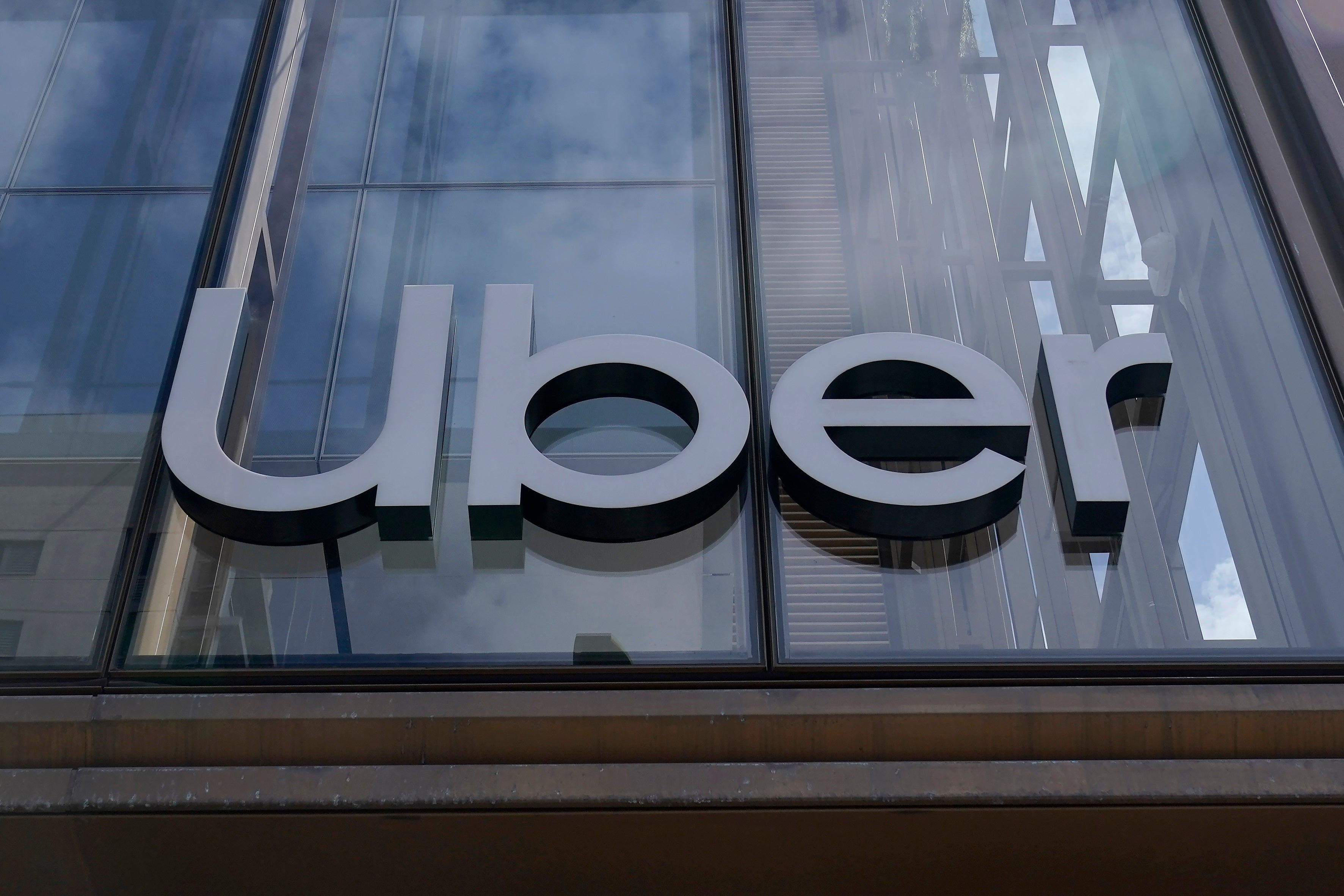Uber and Lyft drivers remain independent contractors in California Supreme Court ruling
The California Supreme Court ruled Thursday that app-based ride-hailing and delivery services like Uber and Lyft can continue treating their drivers as independent contractors rather than employees

Your support helps us to tell the story
From reproductive rights to climate change to Big Tech, The Independent is on the ground when the story is developing. Whether it's investigating the financials of Elon Musk's pro-Trump PAC or producing our latest documentary, 'The A Word', which shines a light on the American women fighting for reproductive rights, we know how important it is to parse out the facts from the messaging.
At such a critical moment in US history, we need reporters on the ground. Your donation allows us to keep sending journalists to speak to both sides of the story.
The Independent is trusted by Americans across the entire political spectrum. And unlike many other quality news outlets, we choose not to lock Americans out of our reporting and analysis with paywalls. We believe quality journalism should be available to everyone, paid for by those who can afford it.
Your support makes all the difference.The California Supreme Court ruled Thursday that app-based ride-hailing and delivery services like Uber and Lyft can continue treating their drivers as independent contractors rather than employees.
The unanimous decision by the state's top court is a big win for tech giants. It also ends a yearslong legal battle between labor unions and tech companies over a law dictating the status of app-based service workers in the state.
The ruling upholds a voter-approved law passed in 2020 that said drivers for companies like Uber and Lyft are independent contractors and are not entitled to benefits like overtime pay, paid sick leave and unemployment insurance. Opponents said the law was illegal in part because it limited the state Legislature’s authority to change the law or pass laws about workers’ compensation programs.
A lower court ruling in 2021 had said the measure was illegal, but an appeals court reversed that decision last year. The California Supreme Court’s decision means companies like Uber and Lyft can continue their operations as before.
Uber called the ruling “a victory” for drivers. Companies like Uber, Lyft and DoorDash spent $200 million on a campaign in 2020 to help the law pass.
“Whether drivers or couriers choose to earn just a few hours a week or more, their freedom to work when and how they want is now firmly etched into California law, putting an end to misguided attempts to force them into an employment model that they overwhelmingly do not want,” the company said in a statement Thursday.
The ruling is a defeat for labor unions and their allies in the Legislature who fought to secure more rights for drivers.
“What’s going on is not just. It’s not what California is about,” said Nicole Moore, president of Los Angeles-based Rideshare Drivers United. “It’s a sad day for workers.”
Labor unions vowed to continue fighting for drivers' job protections and benefits, noting that an earlier ruling in the appeal process had opened doors for the Legislature to pass laws to allow drivers to join a union.
"We are committed to fiercely backing workers across our economy who have been written out and left behind and helping them knock down big obstacles to winning their union rights,” Service Employees International Union President April Verrett said in a statement.
Lawmakers in 2019 passed a law aimed directly at Uber and Lyft, mandating they provide drivers with protections like minimum wage, overtime, health insurance and reimbursement for expenses. It changed the rules in California of who is an employee and who is an independent contractor.
While the law applied to lots of industries, it had the biggest impact on app-based ride-hailing and delivery companies. Their business relies on contracting with people to use their own cars. Under the 2019 law, companies would have to treat those drivers as employees and provide certain benefits that would greatly increase the businesses’ expenses.
In November 2020, voters approved a ballot proposition to exempt app-based ride-hailing and delivery companies from the law. The proposition included “alternative benefits” for drivers, including a guaranteed minimum wage and subsidies for health insurance if they average at least 25 hours of work a week.
Labor groups and drivers across the nation are pushing for more job protections, higher wages and increased benefits. Drivers in Massachusetts are rallying behind what they describe as a first-of-its-kind ballot question that could win them union rights if approved.